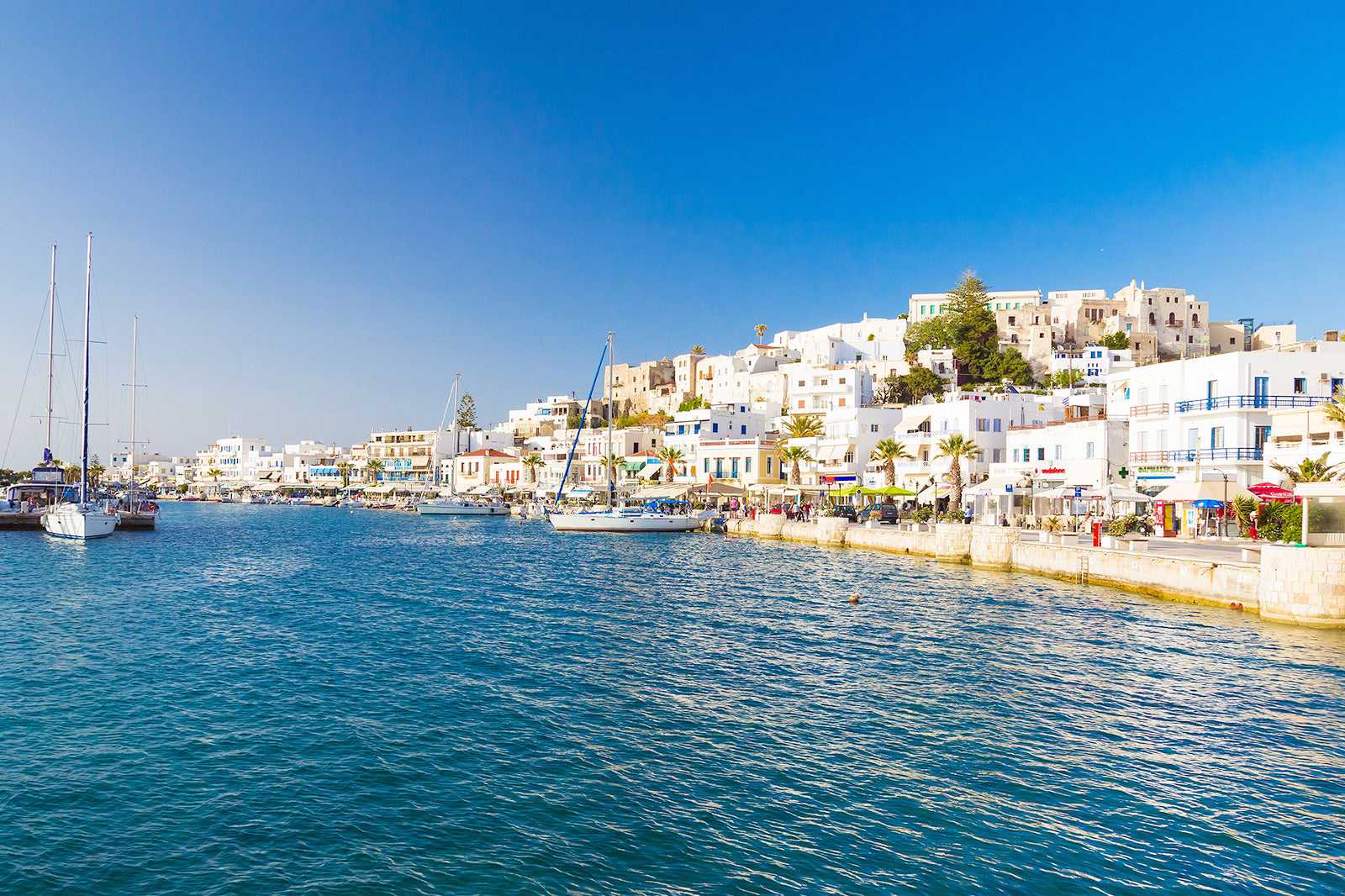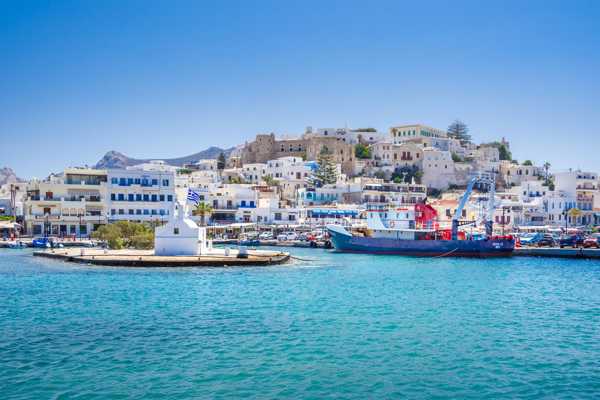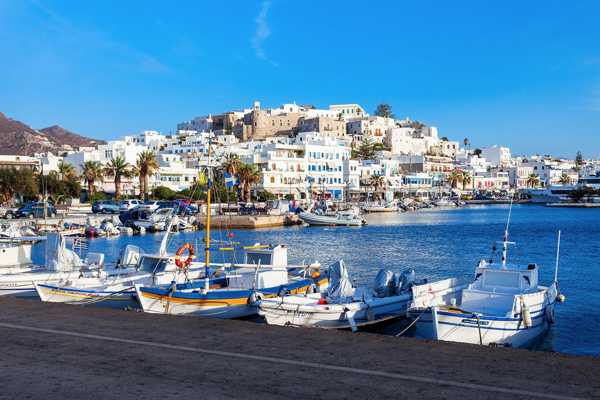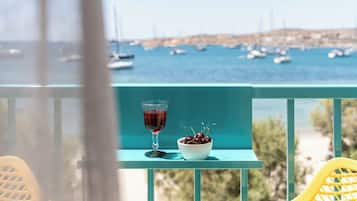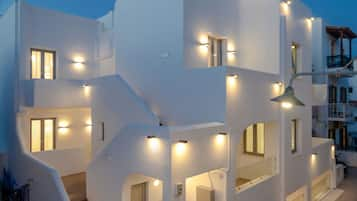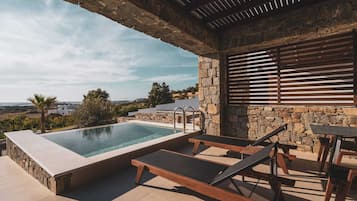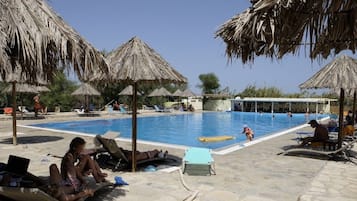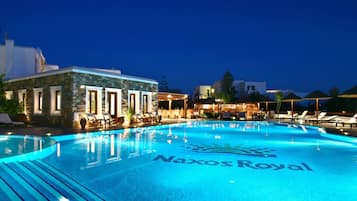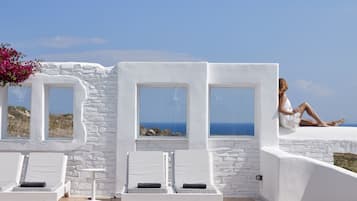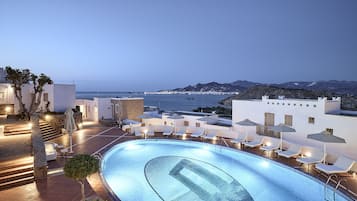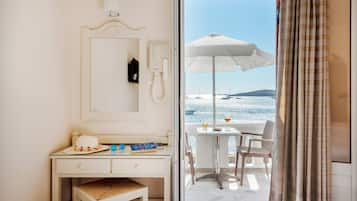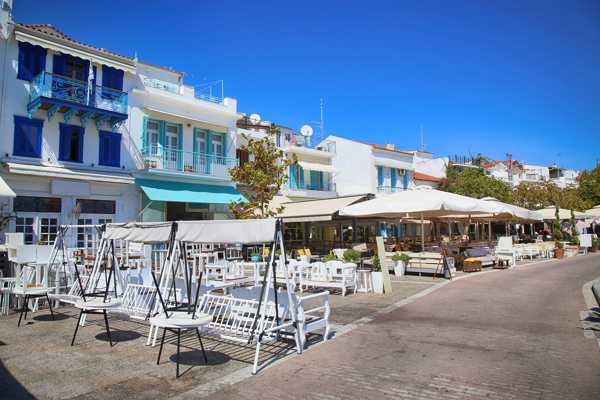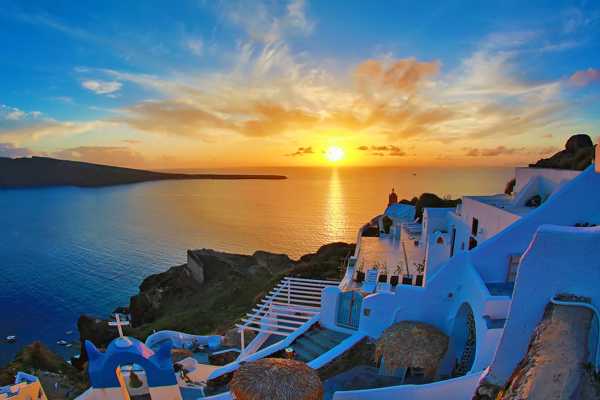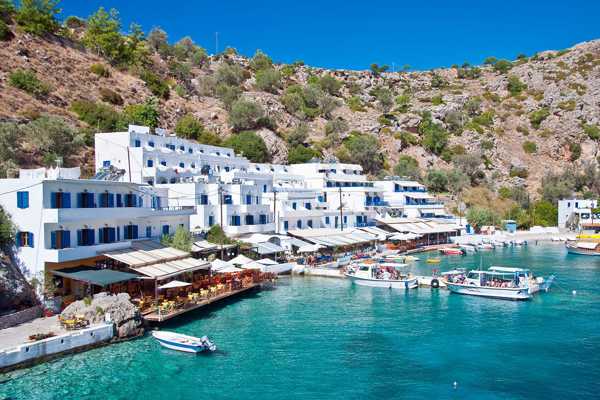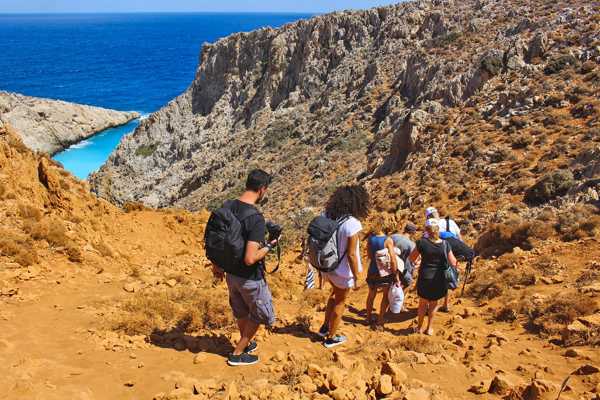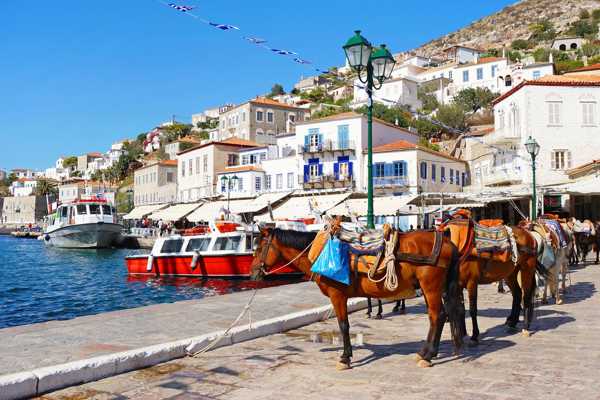The best things to do in Naxos show how couples, solo travellers and families will find the diverse landscape of the island offers more opportunities for adventures than a typical poolside island retreat. Naxos is the largest island in the Cyclades and boasts endless, pristine sandy beaches, verdant mountains and ancient archaeological sites and marble quarries.
Most trips begin in the capital city of Hora, where you'll find a fantastic, lively scene of local eateries and shops, plus impressive landmarks, museums and a Venetian-era castle. From here, you needn’t travel far to soak up the Mediterranean sun on secluded beaches, try out a variety of watersports, hike through the lush countryside where flowers bloom or breathe in Naxos’ rich cultural heritage alive in the atmospheric hilltop villages. Below are some of the best things to do in Naxos.
What are the best things to do in Naxos?
- 1
Hora (Naxos Town)
Discover an incredibly photogenic and walkable town
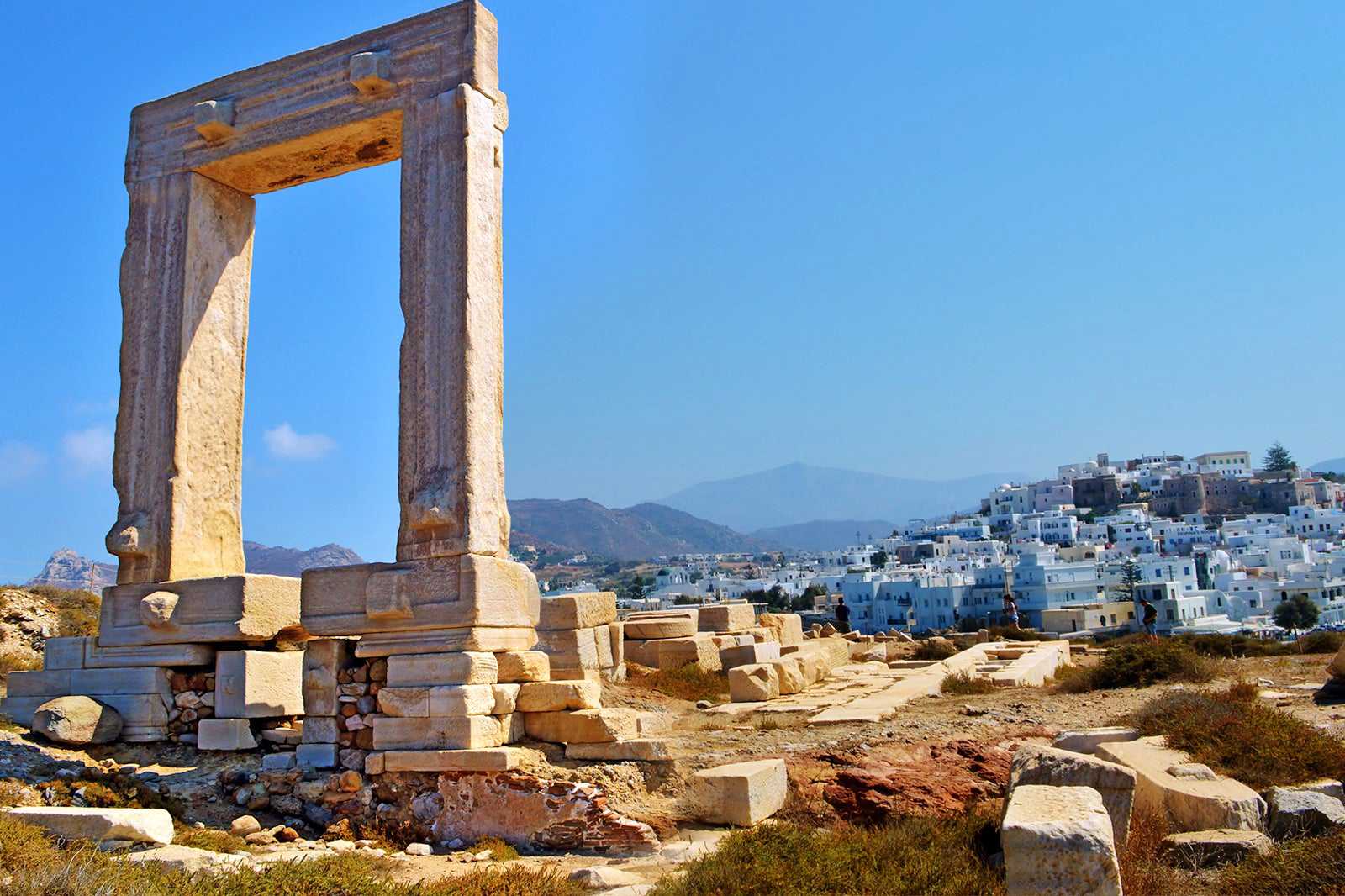
- History
- Photo
Hora is the charming old town of Naxos that brims with historical architectural, whitewashed houses and a web of steep alleys that beg to be explored. Spend your days browsing boutique stores, hanging out with locals at the gorgeous seafront promenade and getting lost in the labyrinth of old streets.
The most alluring thing to do is stroll through the 13th-century citadel of Kastro that sits above the town. Along with fortified Venetian mansions, monasteries and the Archaeological Museum, you can see the ancient Tower of Glezos – the last remaining tower that was built to protect the castle. End the day with strong coffee and dreamy sunset views at the 1739 Terrasse cafe that overlooks Hora and the sparkling blue sea beyond.
Location: Naxos Town, Naxos, 843 00, Greece
Map - 2
Temple of Apollo
A little touristy but a must-see
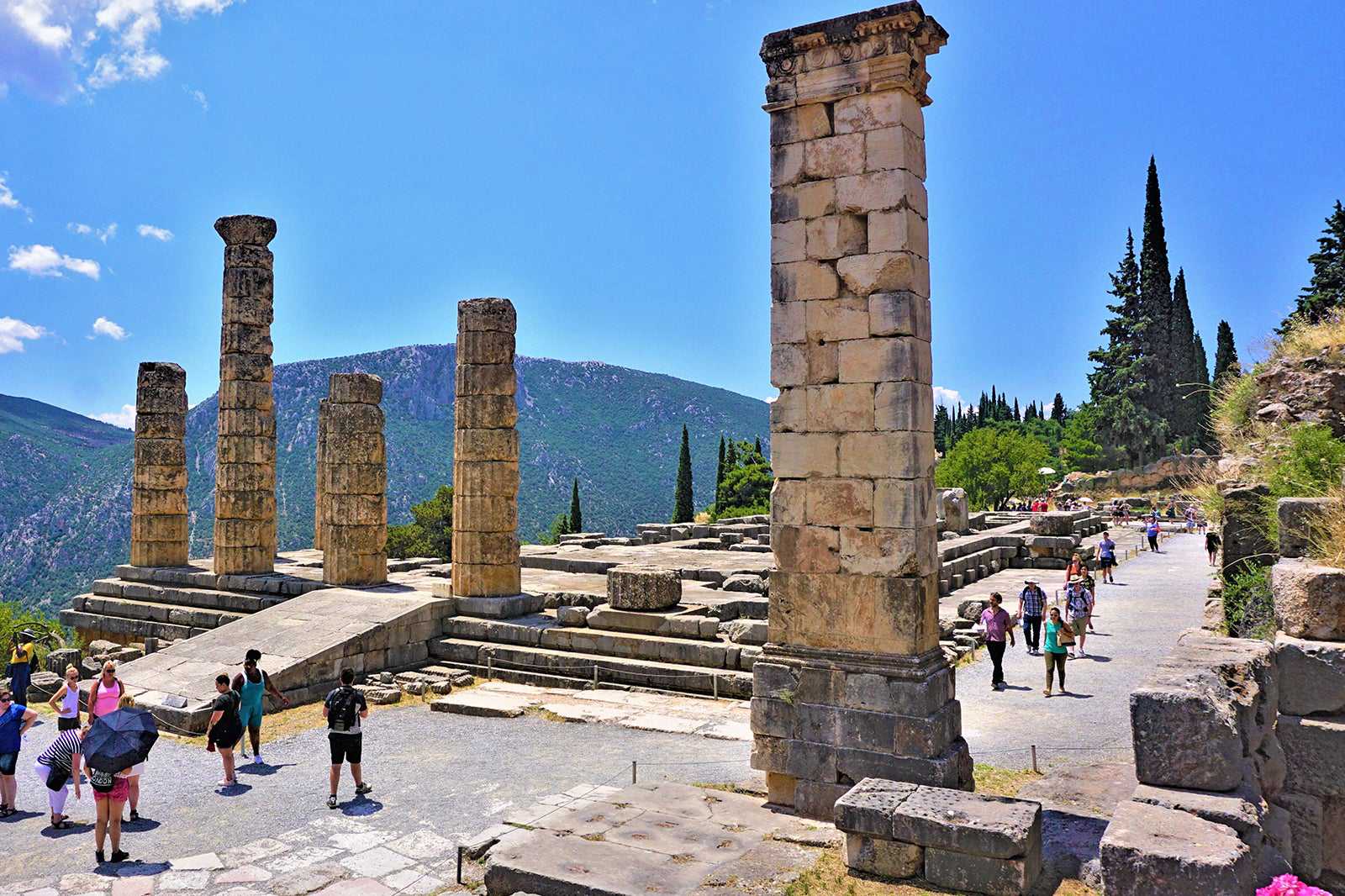
- History
- Photo
The ancient Temple of Apollo, also known as the Portara (meaning ‘doorway’), is Naxos’ most famous landmark. If you come to the island by ferry, you’ll see the temple as you approach the harbour in Hora. The marble structure dates back to the 6th century and is the entrance to a partially built temple dedicated to the god Apollo.
The 6-metre-tall doorway stands on the islet of Palatia and is a short walk along the manmade causeway from Hora. Whether you visit at sunrise or sunset, be prepared for magnificent views, excellent photo opportunities and a palpable, almost magical, energy in the air.
Location: Naxos City, Naxos, 843 00, Greece
Mapphoto by Joyofmuseums (CC BY-SA 4.0) modified
- 3
Agios Prokopios Beach
Hang out on heavenly stretches of powder-soft sand
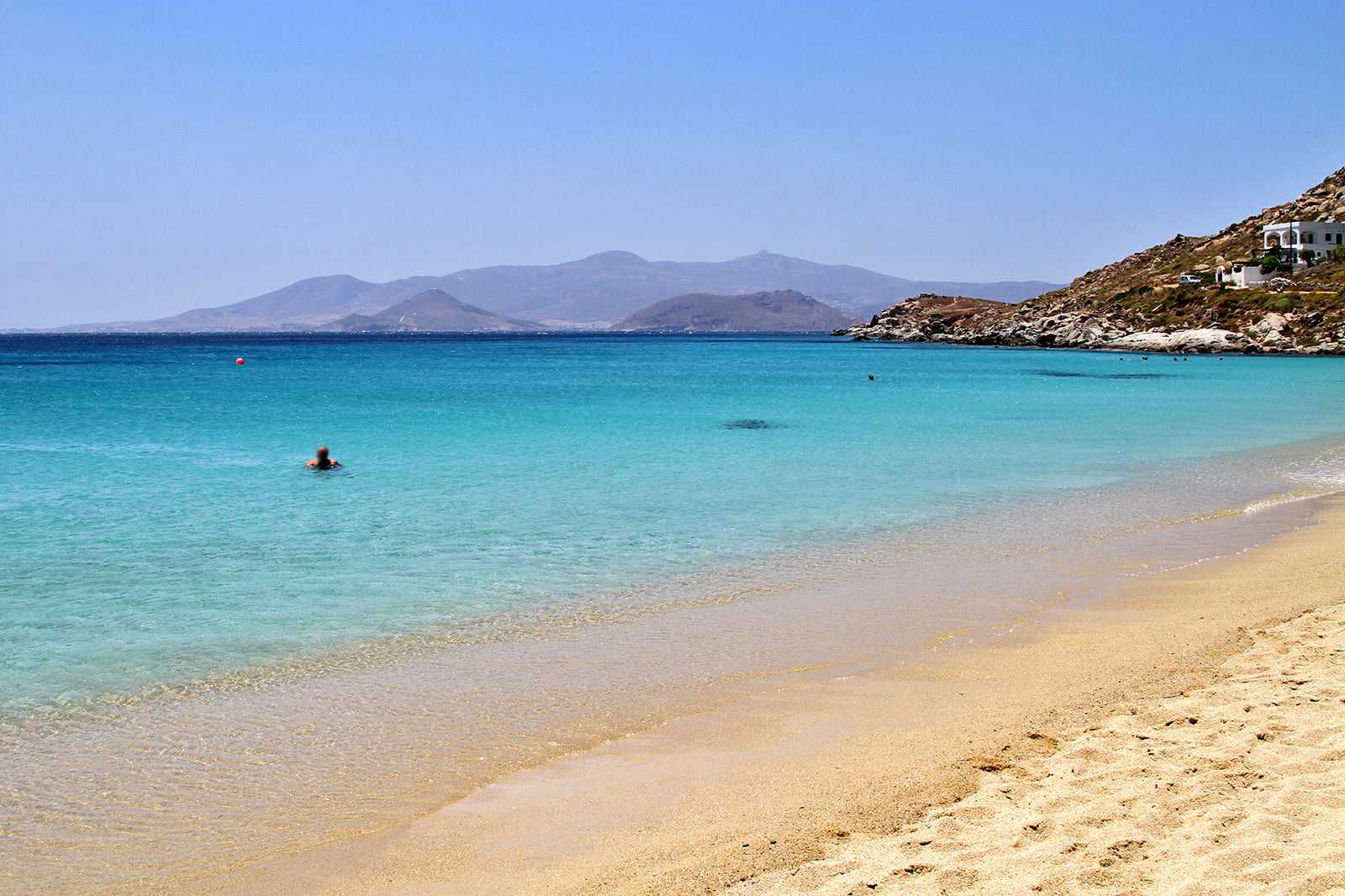
- Budget
- Families
Agios Prokopios is one of Naxos’ many picturesque beaches. The blissful Blue Flag beach is a mere 5 km south of Hora and offers turquoise, transparent water and golden sand. Pick a sunbed, order your favourite cocktail and bask in the sun to your heart’s content. For a more remote seaside experience, Psili Ammos on the southeast coast is a spellbinding beach at the foot of a juniper tree forest.
Thrill-seekers wanting to swap sand for boards will find the wind conditions on the beaches of Agios Georgios, Plaka and Mikri Vigla ideal for watersports such as wakeboarding, stand-up paddleboarding, windsurfing and kitesurfing. Each beach hosts organised sports clubs offering equipment for rent and lessons for all levels.
Location: Naxos, 843 00, Greece
Mapphoto by Carlo Pelagalli (CC BY-SA 3.0) modified
- 4
Naxos Old Market
Wander through ancient streets in search of the perfect souvenirs
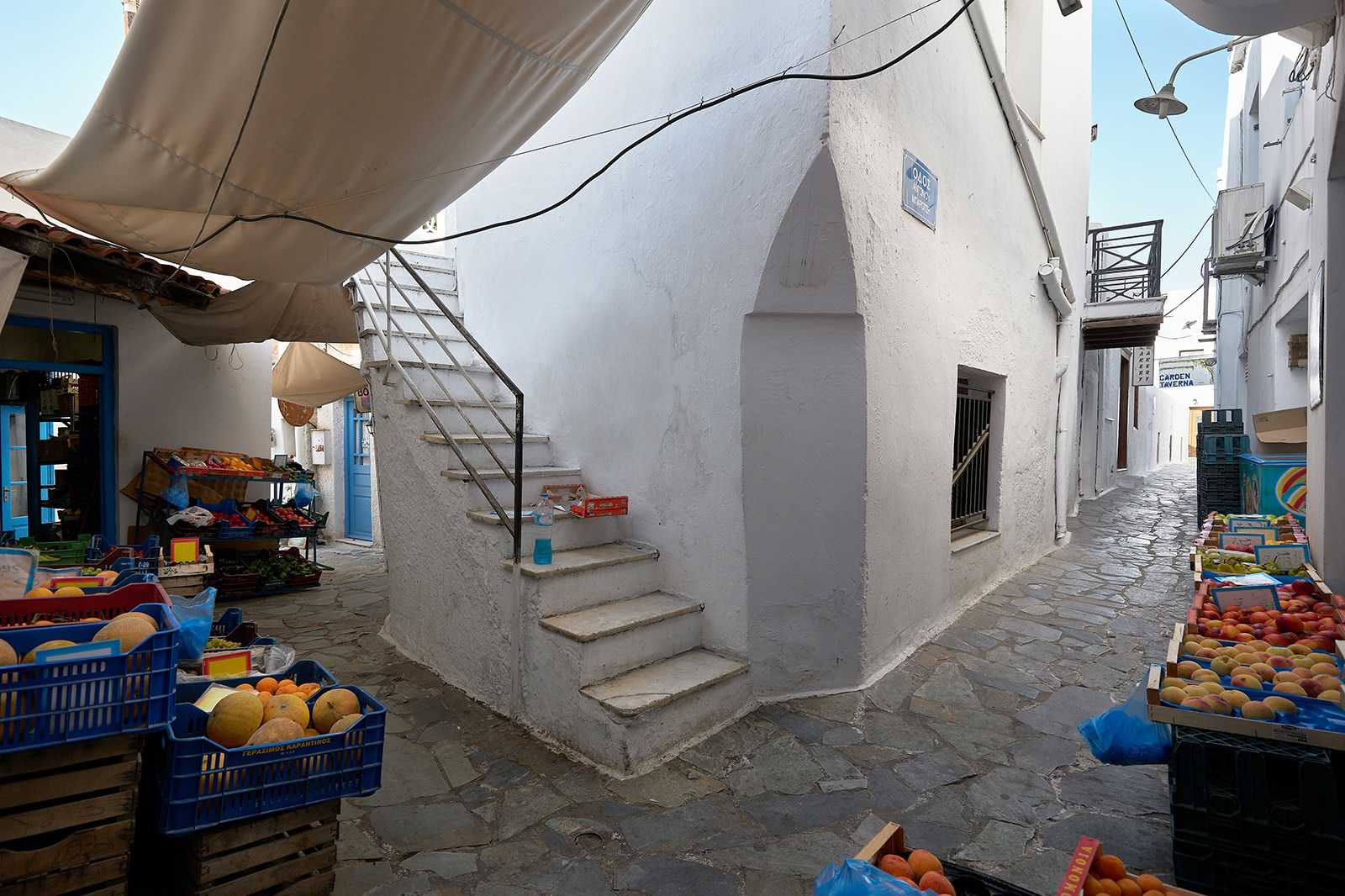
- Food
- Shoppers
Naxos Old Market lies within the old castle walls in Hora. Tucked away in the maze of stone-paved streets, you’ll find a wide variety of little shops selling Greek products. Items include handmade jewellery, T-shirts, art and kitron, a local liqueur made of citron. This is a great place to pick up souvenirs or gifts for friends and family.
The stone buildings also house old-style bakeries. Do try the spanakopita, traditional cheese and spinach pie, or fresh bread from Velonis bakery. For a more substantial meal, grab a seat at any of the tavernas that line the narrow streets.
Location: Naxos Town, Naxos, 843 00, Greece
Map - 5
Temple of Demeter
Enjoy countryside views from this historical site
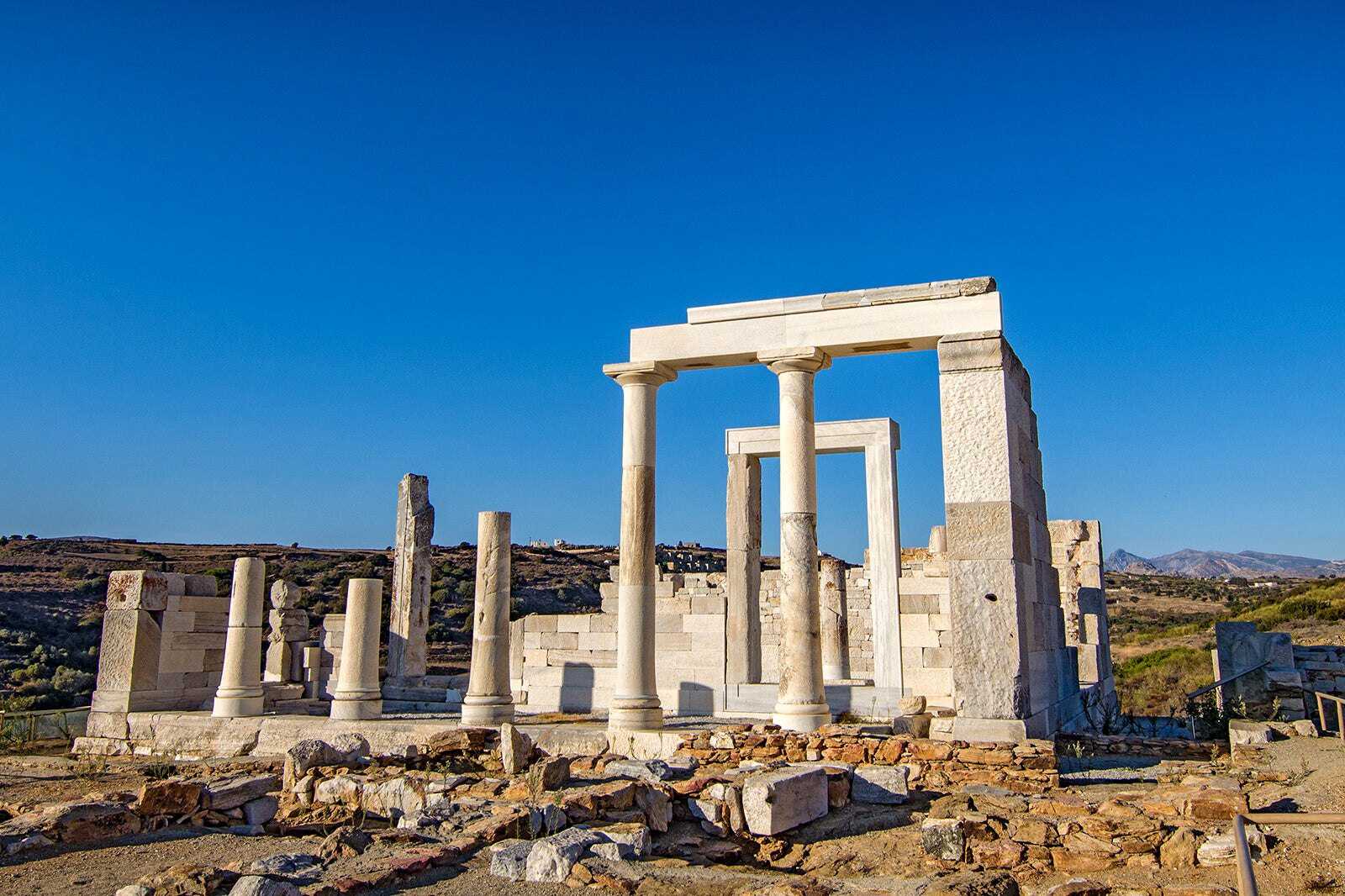
- History
- Photo
The Temple of Demeter is perched on a hill about 2 km south of the inland village of Sangri. Demeter was the goddess of grain, so it makes sense to find her white-marble temple set among Naxos’ fertile fields. It’s a small site, but it’s historical significance make it worth a visit.
The temple was built around 530 BC, and many archaeologists believe the temple to be a blueprint of the Parthenon in Acropolis in Athens. What you see today is the result of a recent, decade-long restoration. Whether you drive or take the bus, it’s recommended to walk from Sangri to the ruins. It’s an easy 30-minute walk along a pretty rural path that crosses green pastures home to farm animals munching on the lush grass.
Location: Sangri, Naxos, 843 00, Greece
Mapphoto by Anastacia km (CC BY-SA 4.0) modified
- 6
Panagia Drosiani Church
Observe frescos dating from the 7th century
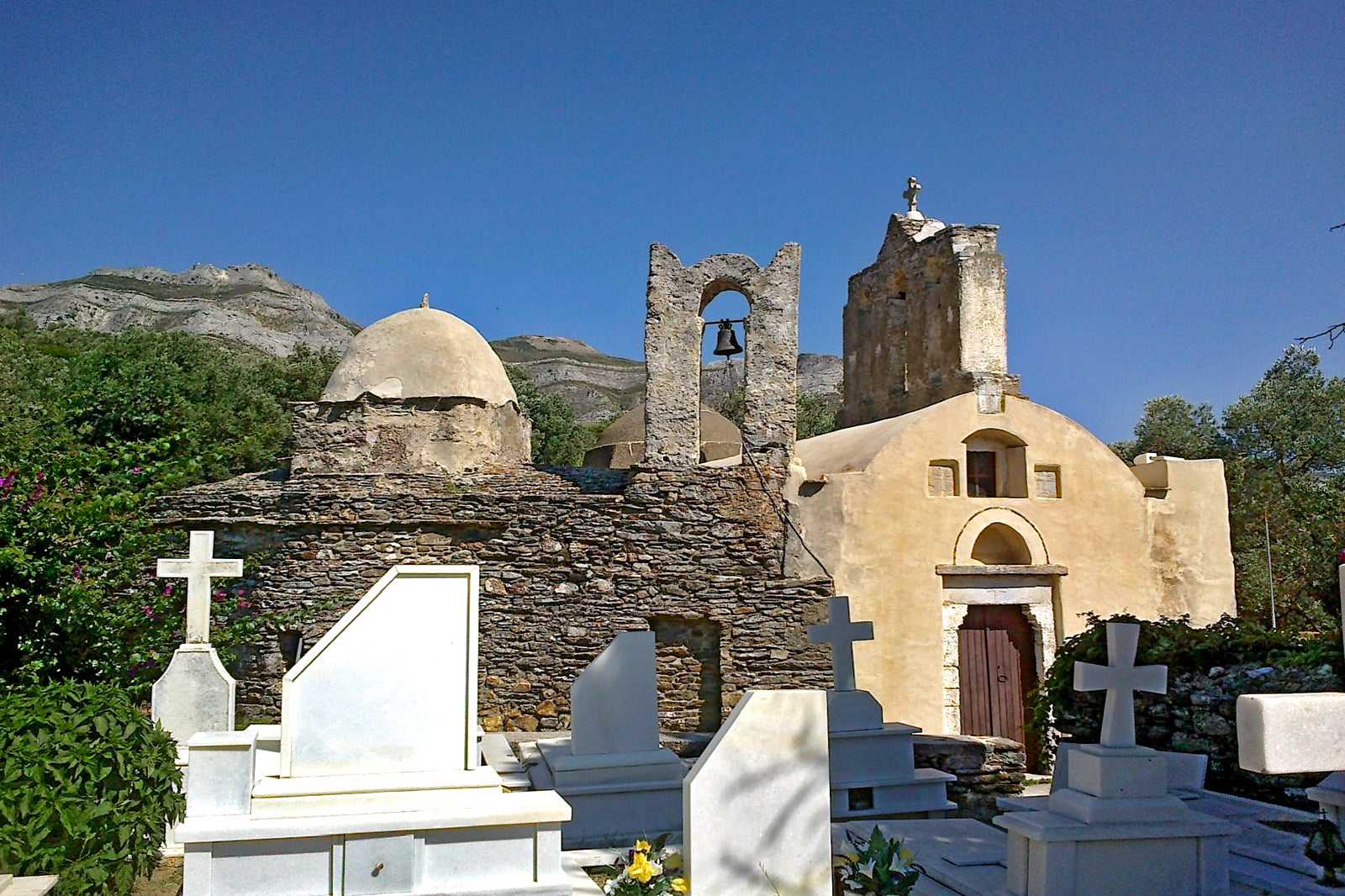
- History
- Photo
Panagia Drosiani Church is the oldest Christian church on Naxos and one of the most revered Byzantine churches in Greece. You can find it 2.5 km north of the village of Halki. The stone monastery dates back to the 6th century AD but was only discovered in the 1970s when excavations took place in the area.
Inside you’ll find small, cavelike chapels and exquisitely preserved murals featuring Biblical themes, including a detailed depiction of the Virgin Mary. You can visit the church all year. On Good Friday, during the Easter period, you can take part in an old Byzantine celebration where locals perform an offering of raki and raisin and nut bread.
Location: Halki, Naxos, 843 00, Greece
Mapphoto by rene boulay (CC BY-SA 3.0) modified
- 7
Mount Zeus
Explore Zeus’ childhood playground
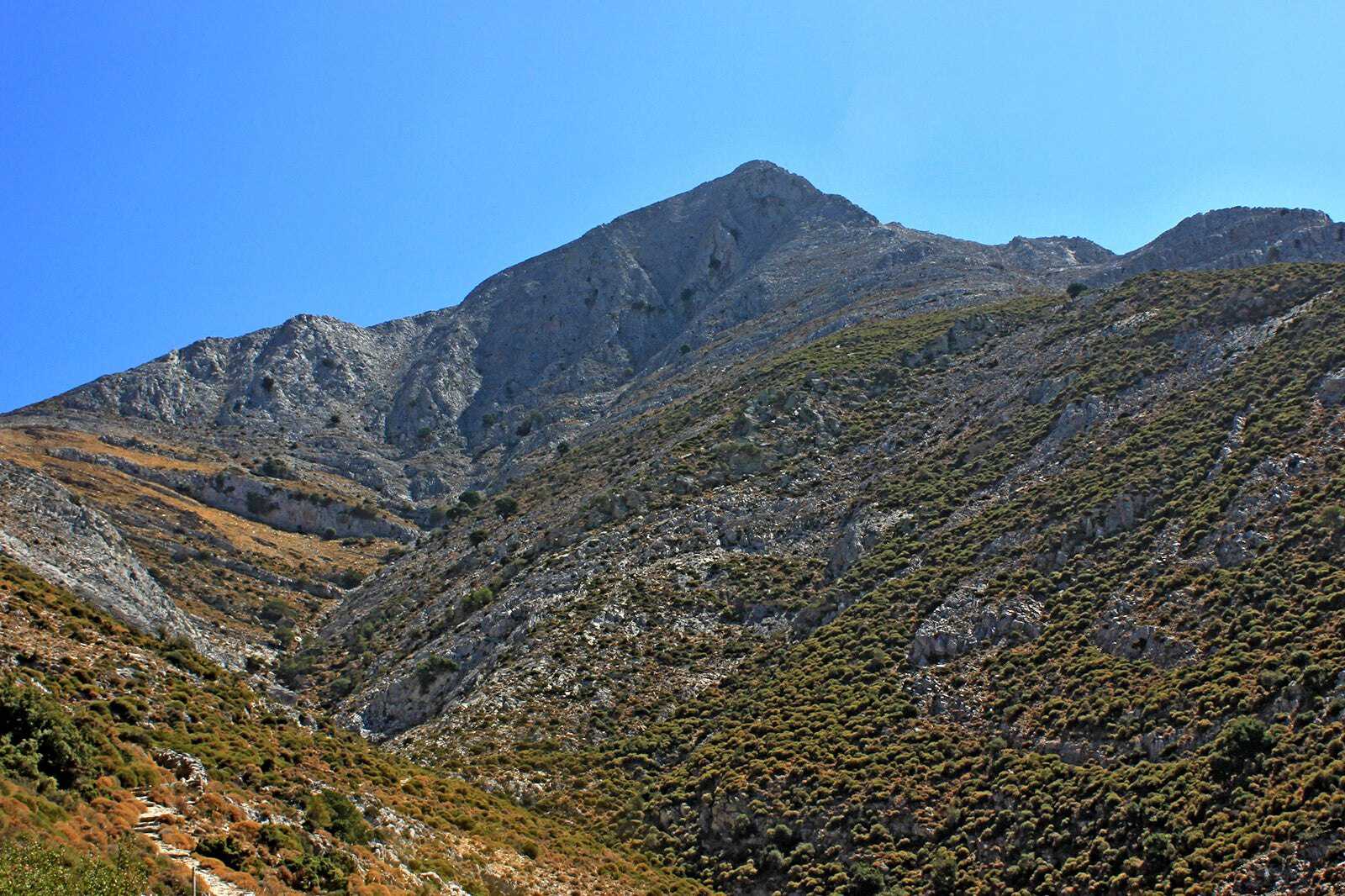
- Adventure
Mount Zeus (or Mount Zas) offers the ultimate hiking experience on Naxos. At 1,004 metres above sea level, it's the highest point in the Cyclades and promises panoramic island vistas. It’s also where Zeus was born and raised. Although it’s a short hike (5-km roundtrip), the trail is steep (there’s a 500-metre gain) and rocky, so stamina and sturdy shoes are needed.
The hike begins near the town of Filoti, a 30-minute drive from Hora. Along the way, you’ll pass Aria Spring where you can lap up fresh mountain water. Just before the summit, you can visit the Cave of Zeus, where the god is supposed to have hidden from the wrath of his father Cronus, who wanted to eat him. At the top, congratulate yourself on your achievement. For an easier route to the summit, start at the village of Danakos.
Location: Naxos, 843 00, Greece
Map - 8
Apiranthos
Immerse yourself in a charming town with marble-paved streets and interesting museums
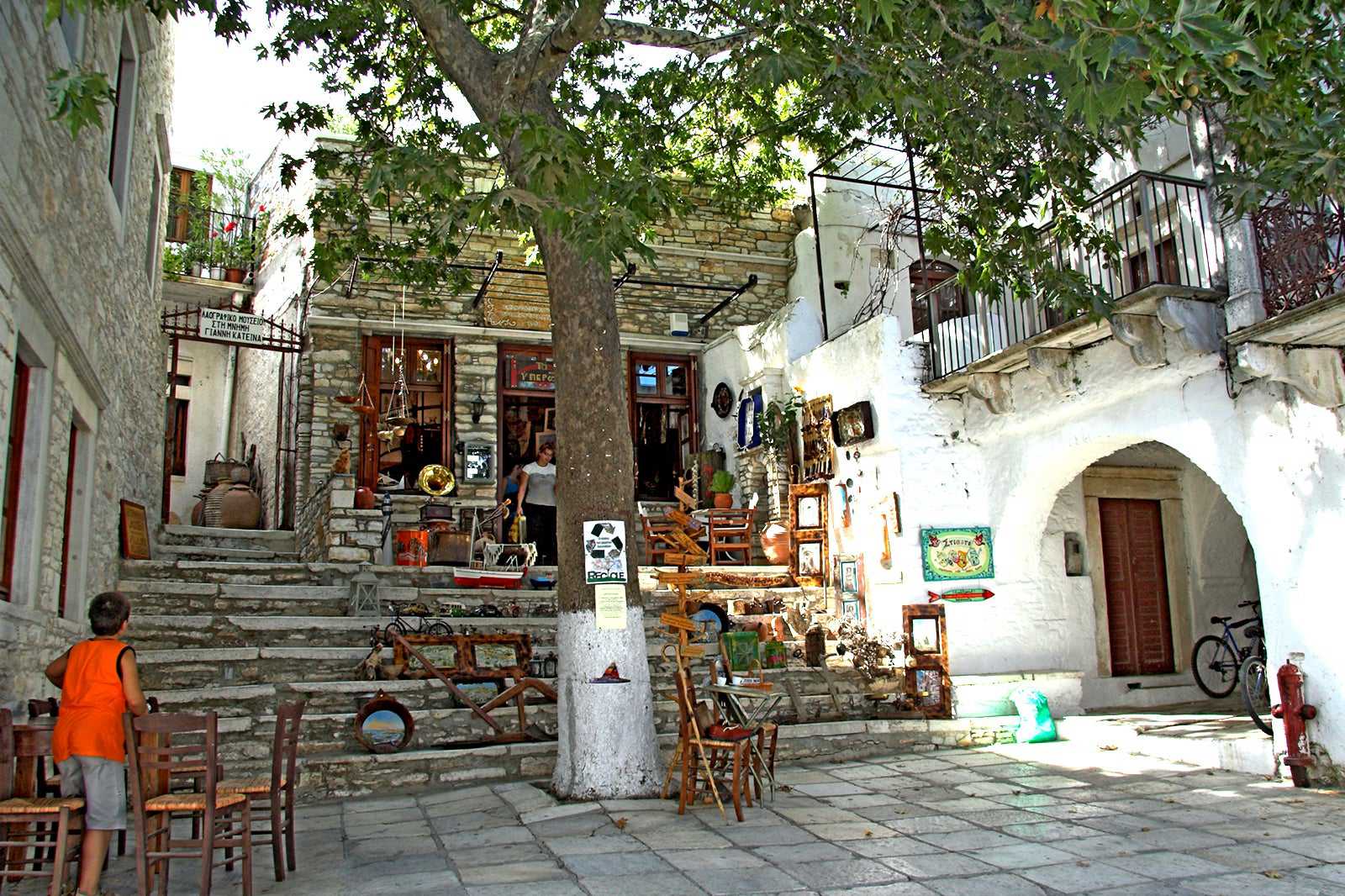
- History
- Photo
Apiranthos (or Apérathos) is about 30 km east from Naxos town and boasts beautiful architecture made entirely out of fine marble. As you stroll through the picturesque streets lined with traditional buildings, stop to try various local delicacies – we suggest the cheese – at any one of the cute cafes.
When visiting, you’ll also have an excellent choice of museums to explore, including the Archeological Museum, Folk Art Museum and the Geological Museum of Apiranthos. Don’t miss the Zevgolis Tower – it’s the village’s most impressive monument that dates back to Venetian times. The 2-storey stone tower is privately owned, and if the owners are home, you can access the verandas, balconies and interior. It’s worth going up for the view alone.
Location: Apiranthos, Naxos, 843 00, Greece
Mapphoto by Zde (CC BY-SA 4.0) modified
- 9
Vallindras Kitron Distillery
Taste a traditional Naxos drink
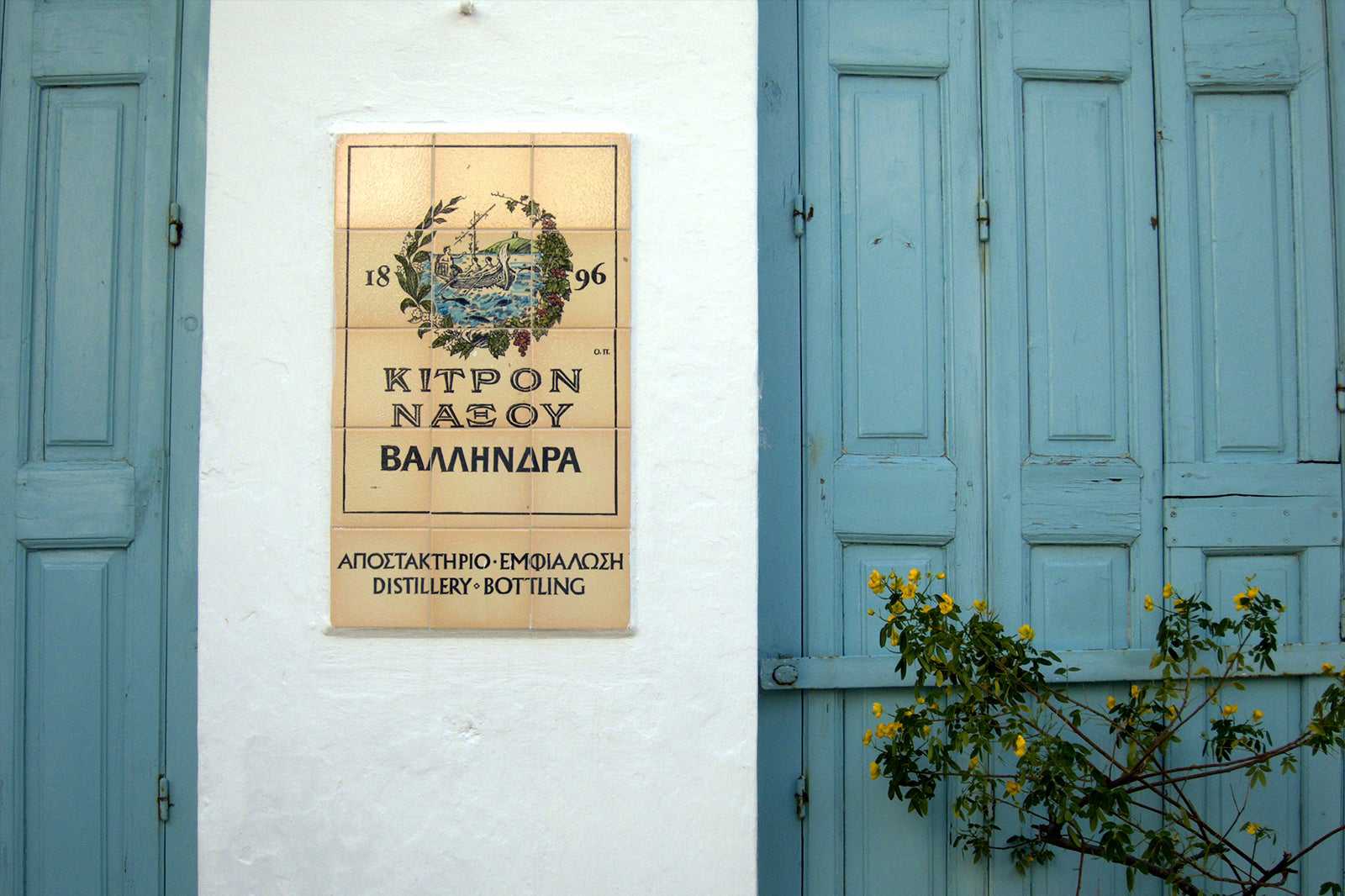
- Food
Vallindras Distillery, on the main square of the mountain village of Halki, is where you can sample the traditional kitron liqueur that’s unique to Naxos. The famous liqueur is made by distilling the leaves of the citron tree – a large citrus fruit resembling a lemon.
The distillery was established in 1896 by the Vallindras family who follows a top-secret recipe to produce 3 varieties differing in colour and strength. Visiting the distillery is free and includes a kitron tasting, plus a short tour of the small but interesting museum to learn about the traditional tools and machinery used to distil the fruit.
Location: Halki, Naxos, 843 00, Greece
Mapphoto by Zde (CC BY-SA 4.0) modified
- 10
Old Town Archaeological Museum
From floor to ceiling, this historic structure is stuffed with interesting archaeological finds
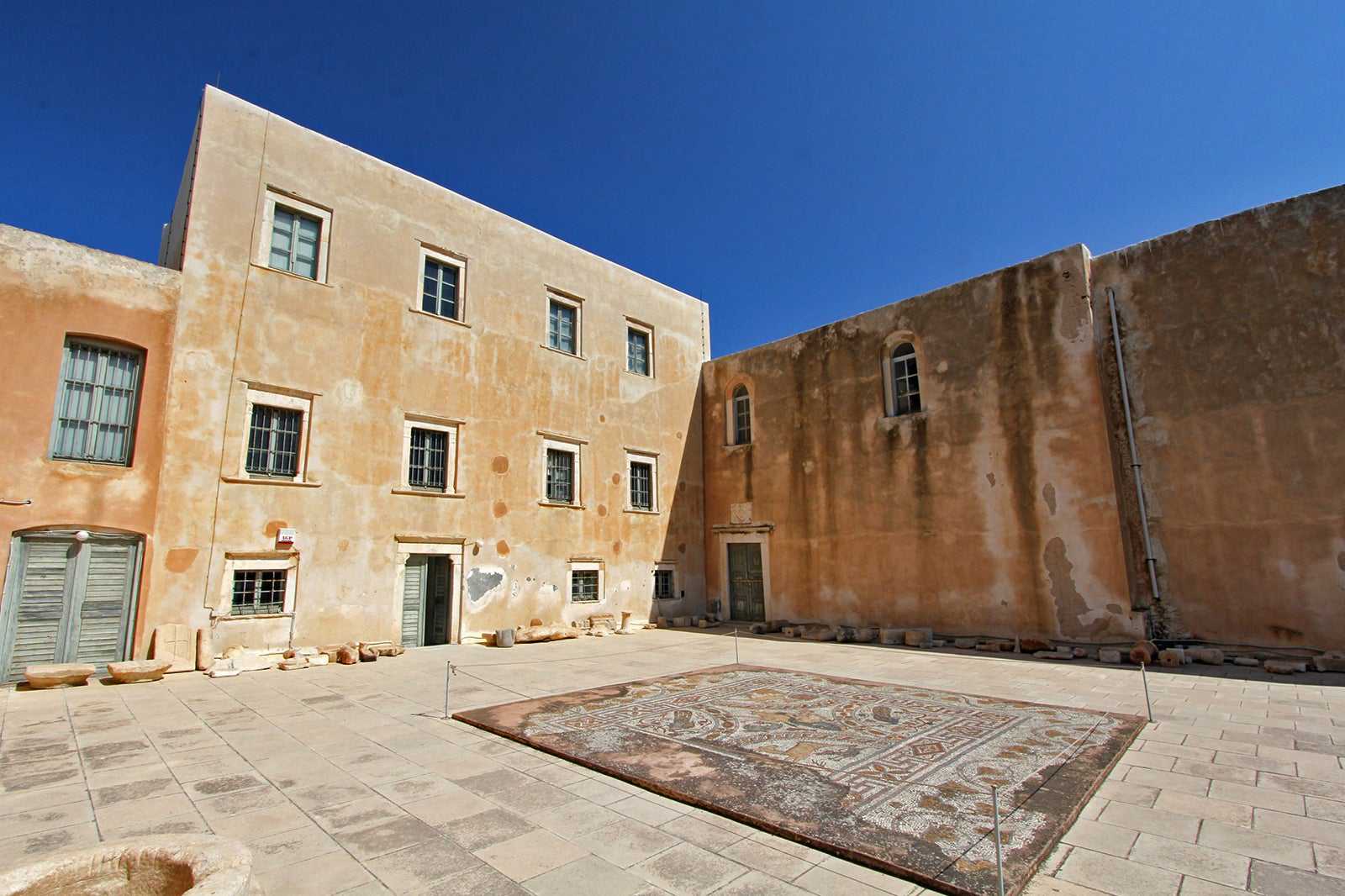
- Families
- History
The Naxos Archaeological Museum is housed in a historically recognised building, constructed as early as the 1600s and acting as a Jesuit school. While the structure itself is interesting, its contents are just as fascinating, with artefacts ranging from burial items to earthen vessels dating to the Bronze Age. You can see a little something from every era of Naxos’s history, whether you’re interested in ancient cultures, art, burial rites or religion.
Since the museum is on the smaller side, it makes a wise stop for families with parents who want to experience a bit of culture and history, but with children who have short attention spans.
Location: Naxos and Lesser Cyclades 843 00, Greece
Open: Wednesday–Monday from 8 am to 3.30 pm (closed on Tuesdays)
Phone: +30 2285 022725
Mapphoto by Tilemahos Efthimiadis (CC BY-SA 2.0) modified
